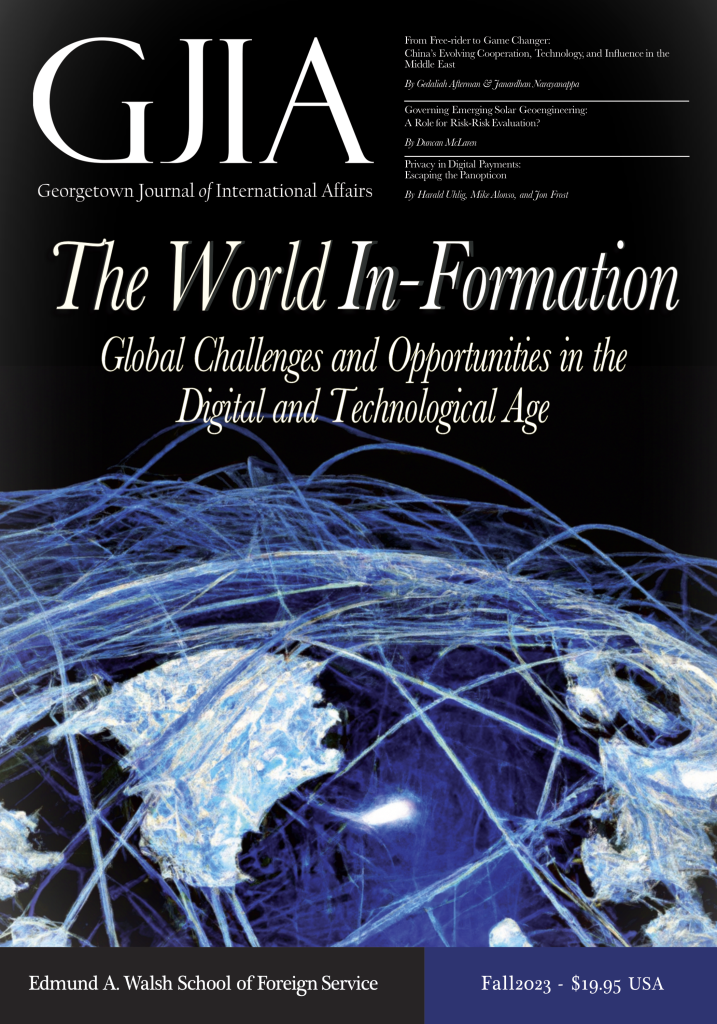Current Issue

The World In-Formation: Global Challenges and Opportunities in the Digital and Technological Age is the Georgetown Journal of International Affairs’s second volume of the 24th print edition. In an increasingly interconnected world, technology’s role in shaping international relations is paramount. The advent of the digital age has redefined diplomacy. Diplomats now leverage social media, online forums, and encrypted messaging to connect globally. This volume delves into how technology is intricately woven into the dynamics of international relations globally—from the digitalization of diplomacy to artificial intelligence’s impact on security.